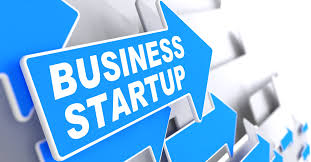- Home
- Questions and Answers
- Starting a Set of Books
Company Start Up Bookkeeping Question
by Maria
(San Diego)
1. Does this also apply for a single member LLC?
2. Let’s say the official start day of my business is March 2009 but I bought expense (start up cost) in December 2008 a prior year can you still deduct it since it was in 2008 and not in 2009?
3. Last question I know the 5,000.00 rule but how would a bookkeeper journal entry that so that the cpa or tax person can take that sec 125 deduction?
Like normally I would debit the expense and credit cash but that’s when the business has started what happens if I have 300.00 in office supplies for start up costs? How would I journal entry that then.
I would really appreciate your help I am a bookkeeper trying to get more knowledge and I would like to understand this better. Thank you.
Comments for Company Start Up Bookkeeping Question
|
||
|
||
|
||
|
||
New business - E&O needed?
I'm setting up my bookkeeping business in Ontario, should I get Errors and Omissions Insurance coverage?
Comments for New business - E&O needed?
|
||
|
||
Start Up Costs
by Pat
In a new business when purchases are made for items to use as display (racks, shelves, etc) should this expense get recorded in balance sheet as startup cost or on P and L side as expense?
Comments for Start Up Costs
|
||
|
||
Starter Bookkeeper
If I want to get into bookkeeping and I do not really know much about the subject where is the best place for me to start?
Comments for Starter Bookkeeper
|
||
|
||
Starting a Set of Books
by Glenda
(Canada)
Hi, I am wondering what information you need to start a set of books for an existing company that has recently incorporated from a sole proprietorship.
Is the balance in the bank account recorded as retained earnings?
Hi Glenda,
Thank you for your question.
In order to start a set of books for an existing company that has recently incorporated from a sole proprietorship, you would need the balance sheet from the last date of business for the sole proprietorship.
Then you would do one big journal entry to record the ending balances of the sole proprietorship as the beginning balances of the corporation. All the balances are typically journal entried through the Opening Balance Equity account.
Please subscribe to my monthly newsletter, Bookkeeping Basics E-zine. It tells you every month about the new information that I have added, including some great tips and advice from myself and other Bookkeeping Basics readers.
Like Bookkeeping-Basics.net?
- Home
- Questions and Answers
- Starting a Set of Books













